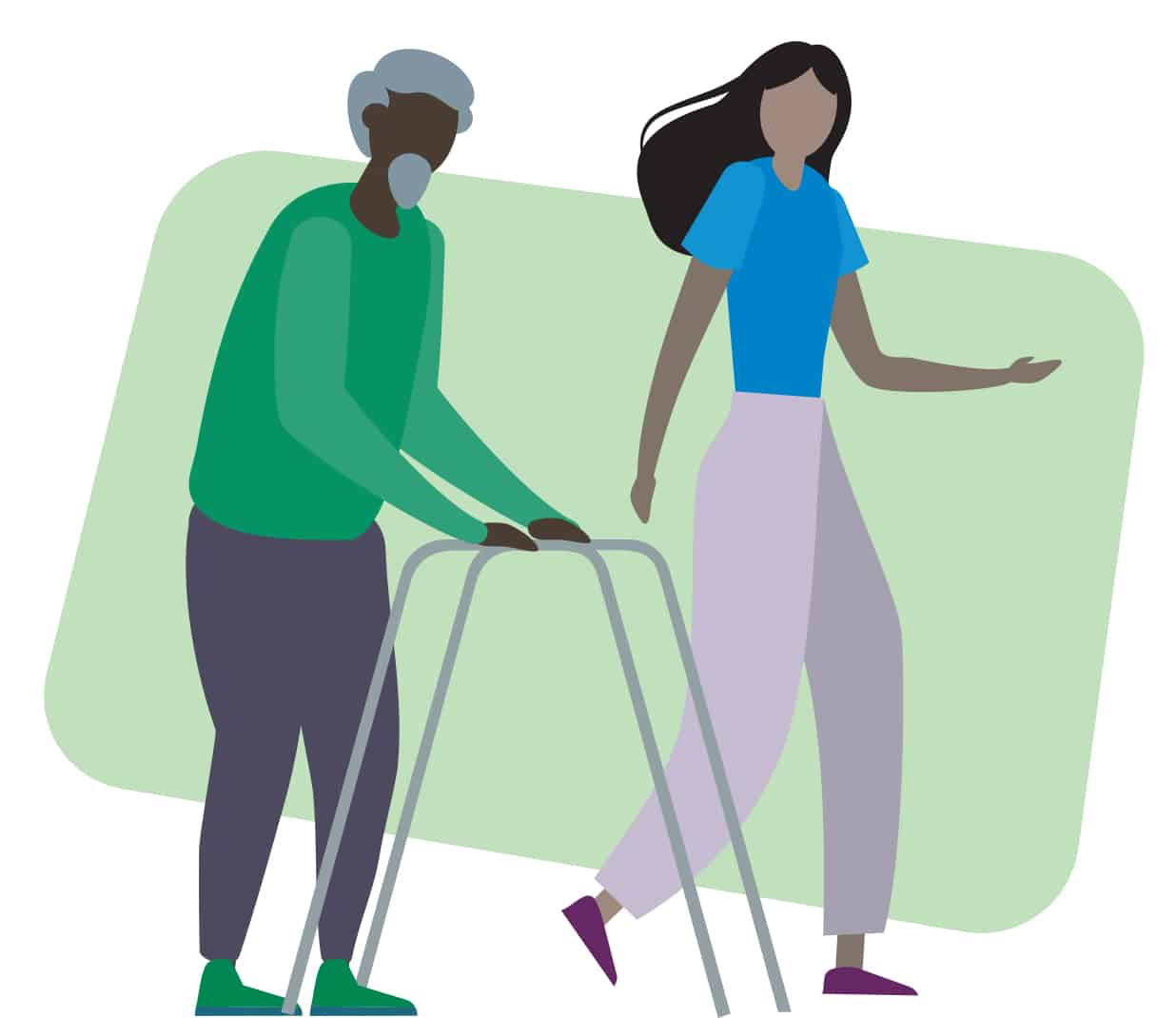Gifting the Caregiver
How family and friends can use their time, skills or purchasing power to help reduce caregiver burden

According to data from Cleveland Clinic and Parade Media, 56% of caregivers say it’s unrealistic for them to take a day off — even though 70% agree they need regular mental and emotional health breaks.
“It can be difficult to ask for help. Yet research shows we enjoy helping others so much so that it’s a desire believed to be hardwired in humans,” says Lucille Carriere, PhD, Angie Ruvo Endowed Caregiving Chair at Cleveland Clinic Lou Ruvo Center for Brain Health in Las Vegas.
If you’re a caregiver, it’s time to put your wish list down on paper. Next time someone offers to lend a hand, you’ll be ready with specific ways to take them up on that well-intentioned offer.

Self-Care:
Self-care isn’t self-indulgence. It’s part of a regular, healthy routine — including getting a good night’s sleep and exercising regularly — to get you through the long haul.
Two-thirds of caregivers to people with dementia are women. If you’re trying to care simultaneously for small children and aging parents as a “sandwich caregiver,” carving out time for self-care may seem impossible, but you can start small.
Here are some ways that family and friends can help caregivers recharge:
Gifts for the Caregiver:
- Items for an in-home spa day.
- Home exercise equipment.
- Subscription to online exercise or mind-body classes.
- Subscription services for streaming platforms.
- Magazine subscriptions.
Gifts of Time for the Caregiver:
- Read for pleasure.
- Chat with a friend on the phone.
- Take a power nap.
- Meditate, either self-guided or via apps.

Respite Care
Respite care is a short-term break from your usual routine as a primary caregiver.
“Respite is restorative for caregivers, enabling you to return more mentally and physically prepared to navigate the challenges of caregiving and avoid burnout,” says Dr. Carriere.
These gift ideas may help to ease your mind and facilitate a much needed get-away.
Tangible gifts:
- Room monitoring cameras.
- Door alarms.
- Wearable medical alerts.
- Medication organizers.
- GPS tracking devices for small valuables.
- Digital clocks with custom reminders.
- Adult day care or in-home care gift certificates.
- Ride share gift cards.
Time or Skills:
- Secure potential hazards in the home.
- Remove rugs and other fall risks.
- Install room lights that turn on at dusk.
- Identify low- or no-cost local transportation services.
- Identify and apply for respite care stipends.
- Create “IOU certificates.”
- Look for youth in your network to volunteer and help out.

Gifts for Care Recipients
When someone else fills in as a caregiver, it can be incredibly enriching for the care recipient, too.
“The greatest barriers to friends and family stepping in to care for your loved one can be fear they will ‘do something wrong’ that would agitate or harm the care recipient, or simply not knowing how to interact with the person in their current condition,” says Dr. Carriere.
As a caregiver, you can help your respite helpers help you. Suggest these activities or gifts, which might be enjoyable for the pair to do together:
Activities:
- Engage with music or sing karaoke.
- Share a new skill.
- Call a friend.
- Read short stories or poems.
- Reminisce with old photos.
- Go for a walk or a drive.
- Record the telling of family history or recollections of the past.
Tangible gifts:
- Personal grooming gift certificates.
- Restaurant or food delivery gift certificates.
- Personalized puzzles.
- Familiar games.
- Easy word searches, jigsaw and crossword puzzles.
- Adult coloring books.
- Journals with conversation prompts to reminisce about the care recipient’s life.
Time or skills:
- Provide technical assistance with small electronics such connecting hearing aids to other devices.
- Digitize old photos and videos.
- Build a garden outside the care recipient’s window.

Household Tasks
“Loss of traditional roles and responsibilities within the family is part of the collateral damage of a degenerative neurological condition,” says Dr. Carriere. “Family caregivers frequently share how challenging it is to learn new tasks that had previously been done by the care recipient, such as cooking or tax preparation.”
Consider these ways someone might put their talents to work and help a caregiver or alleviate day-to-day tasks.
Help out at Home:
- Perform routine home maintenance chores and repairs.
- Decorate for seasonal holiday.
- Uphold family or cultural traditions.
- Repair cars or take them to an auto shop.
- Set up a new computer, fix an old one or help install software.
- Provide smart phone assistance.
- Pay bills or handle other accounting taxes.
- Provide rides to medical appointments or procedures.
- Accompany a medical appointment and take notes.
- Order household supplies or groceries for delivery or curbside pickup.

Tangible Gifts:
- Gift certificates for a housecleaning service.
- Premade meal kits or prepared meals delivered to the home.
- Gift certificates for landscaping or yard service.
Time or skills:
- Schedule appointments.
- Organize a new space for living more efficiently or to address new physical needs.
- Declutter the home.
The bottom line, says Dr. Carriere, is that hearing “Don’t worry. I’ve got this” from a friend or family member is music to a caregiver’s ears and can put the pep back in their step as they strive to meet the day-to-day demands of their 24/7 unpaid vocation.
For more insights into how to gift the caregiver, download the full guide here.
